Bolt vs Uber Driver Support: Who Actually Has Your Back?
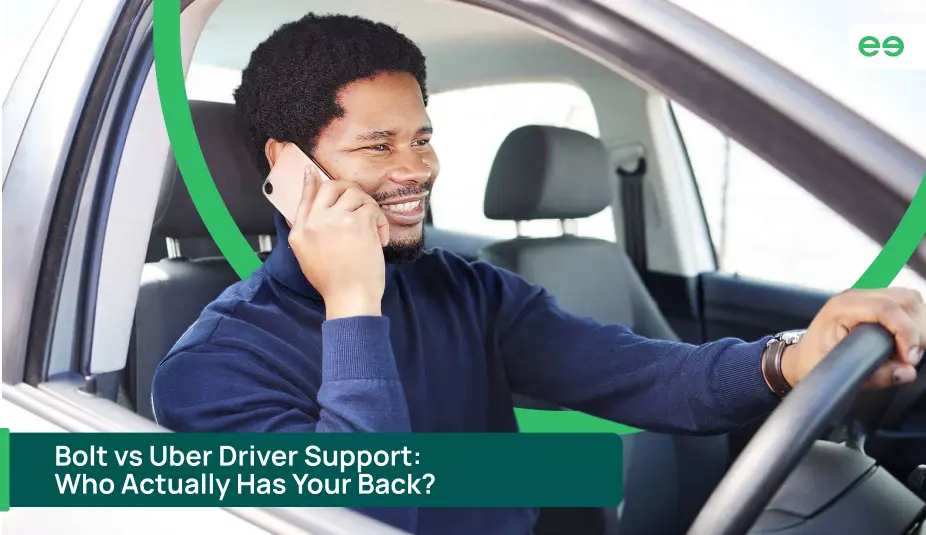
Things can go wrong at any time on the road. One moment, you’re sailing through your shift; the next, your app freezes mid-trip or a sudden document issue arises. In these moments, quick and reliable driver support isn’t just helpful, it’s essential.
This article will explore how two of the biggest ride-hailing platforms, Uber and Bolt, offer driver support, so you’ll know what to expect when things go wrong.
Article Highlights
Find out whether Uber or Bolt gives PCO drivers better support in London. We compare:
- Accessibility of support
- Response times
- Problem resolution
- Driver communication, and more.
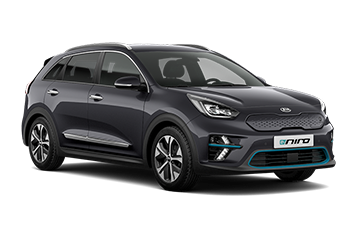




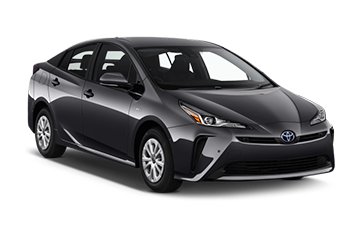
Accessibility of Support
Uber
Uber’s multi-layered support system aims to cover every need of drivers, from basic queries to urgent problems.
- For minor issues, you can use in-app support which is packed with FAQs and allows you to submit tickets as well.
- For emergencies like accidents, safety concerns, or account access problems, Uber has a 24/7 helpline at 0808 189 7190.
- Uber also has physical support centres known as Greenlight Hubs. Here, you can talk to a representative face-to-face. However, you’ll need to book an appointment to meet with a support agent.
That said, many drivers report slow or robotic responses, often feeling like the support didn’t even read their message.
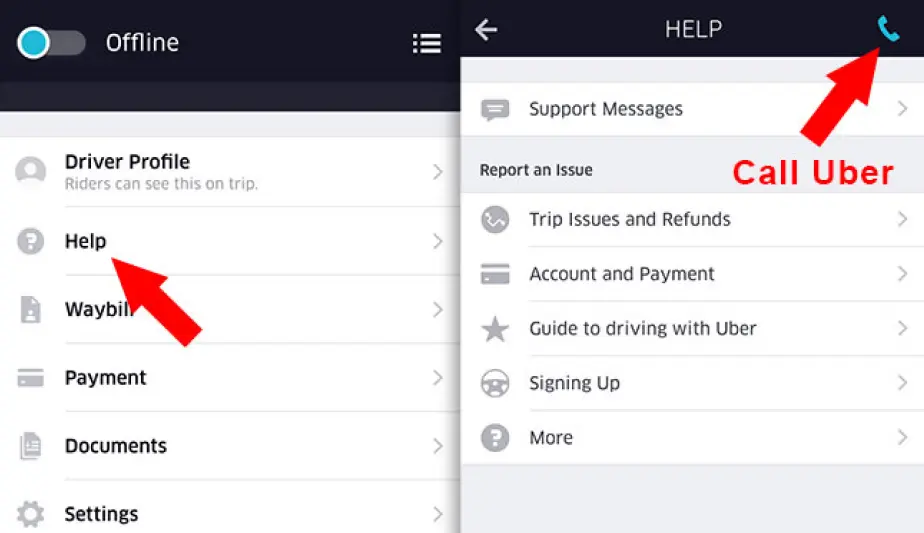
Bolt
Bolt’s support system is similar to Uber’s.
- It offers in-app assistance with a help section for FAQs and lets you raise tickets for further support.
- If the in-app support doesn’t work, you can submit an email ticket at info@bolt.eu. Some drivers report that Bolt’s response time is faster than Uber’s.
- You can also contact Bolt through their 24/7 phone support at 0808 169 8818 or their physical help centres. However, Bolt’s physical help centres have fewer locations than Uber’s.
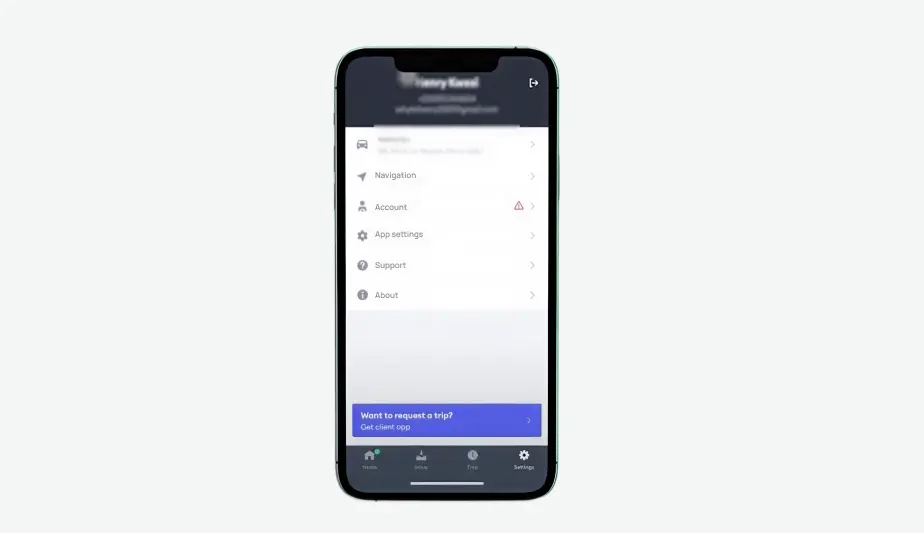
Verdict:
Bolt wins for speed, human touch, and accessibility. Uber still offers more physical locations. In many UK cities, Bolt has local teams that pick up the phone or call you back. With Uber, it’s often an automated message or a copy-paste reply from a bot. You can be stuck waiting days for a real answer.
Response Times
Uber
- Uber’s in-app support gets you a reply within 24-48 hours.
- If your message is flagged as ‘urgent’, you may receive a quicker response or callback.
- Many drivers say the initial response often feels generic, requiring several follow-ups to resolve complex issues.
Bolt
- Bolt often replies within 12-24 hours for routine issues, giving them a slight edge on Uber.
- The resolution for general issues is quick, but complex problems may take longer.
- Bolt’s phone support can sometimes solve matters in one call, reducing the need for multiple follow-ups.
Verdict: Bolt pulls ahead again with faster and more useful responses. It’s the difference between getting help today and by the weekend.

Problem Resolution
Uber
- Complaints are easy to file, but Uber mostly leans towards the passenger’s side.
- Disputes about fare adjustments, cancellations, or rider behaviour often favour the passengers.
- While serious safety concerns receive priority, drivers frequently report that standard issues are addressed with automated replies rather than thorough investigations.
Bolt
- Bolt is often willing to listen and adjust for minor issues.
- Drivers are more likely to receive a fair response to bad ratings or disputes, especially in no-show or “driver didn’t arrive” accusations.
Verdict: Bolt is more flexible, especially on minor problems. Uber can feel like a corporate system.
For drivers on weekly PCO car hire or rent-to-buy plans, slow dispute resolution or unfair complaints can quickly affect their earnings and make it harder to stay on top of payments.
Struggling with slow responses or unfair complaints while you’re renting a PCO car? Our team regularly helps drivers understand their rights, prepare evidence for appeals, and avoid unnecessary downtime. If your platform support isn’t helping, we will.
Driver Communication
Uber
Uber sends frequent in-app messages and emails about:
- Policy updates and new compliance rules.
- Promotions, bonuses, and earning tips.
- Safety reminders and incident reporting guidance.
- App feature changes and training resources.
Some drivers appreciate the regular updates, while others complain about notification overload.
Bolt
Bolt’s communication is more focused on:
- Weekly summaries.
- Bonus targets.
- Key updates provided only when needed.
This means fewer updates and reminders about regulatory changes, safety tips, and educational materials that could be helpful for drivers.
Verdict: Bolt wins for clarity, but Uber wins for comprehensiveness. It’s a matter of personal preference: do you want more information or fewer interruptions?


Not Getting Help Fast Enough?
See which app responds quicker between Uber and Bolt.
Driver Deactivation & Appeals
Uber
Deactivations can happen after rider complaints. However, Uber offers:
- A structured appeals process.
- The ability to submit additional evidence (dashcam footage, trip screenshots, messages).
- A chance to reactivate in some cases. However, reactivation can be slow and stressful.
Bolt
Bolt’s system is less forgiving. Deactivation often means:
- The appeal process is unclear, and reactivations are rare.
- No clear timeline or point of contact when you’re suspended
Verdict: Uber wins here. Their process might be slow and frustrating, but it exists. Bolt is excellent at providing day-to-day support, but their appeals process feels like a dead end.
Documentation and Account Management
Uber
- Uber lets you upload documents through the app or in person (Greenlight Hubs).
- Uber alerts drivers about expiring documents 30 days in advance.
- Often warns before deactivation if something’s missing.
Bolt
- Bolt relies mainly on online document uploads, which are efficient but leave less room for error correction.
- Bolt also notifies you 30 days before your documents expire. However, if something lapses, Bolt is more likely to auto-deactivate your account.
Verdict: Uber leads document management with better proactive communication and support options, helping drivers avoid sudden account suspensions.
Local Driver Relations
Bolt aims to build relationships with drivers by hosting Zoom Q&A sessions, community events, and involving local support teams. This approach can make the platform feel more approachable and engaged. Uber, while offering robust support systems, has shifted towards a more centralised and automated model, which some drivers feel is less personal.
Verdict: Bolt wins for its increased focus on driver relationships and community engagement.
Support Comparison Table (Neutral Overview)
Feature | Uber | Bolt |
In-App Support | Comprehensive but often uses robotic responses. | Straightforward with responses that feel more personalised. |
Phone Support | Available, though response time may vary. | Generally faster, with local teams in some cities. |
In-Person Help | More support centres in major cities. | Available, though locations are more limited. |
Response Time | Typically 24-48 hours. | Often responds within 12-24 hours. |
Flexibility with Issues | Tends to follow strict policy guidelines. | May allow more flexibility for minor concerns. |
Appeals & Reactivation | Structured appeals process available. | Limited or unclear appeals process in some cases. |
Document Reminders | Proactive reminders via app. | Fewer alerts. Drivers may need to track expiry dates manually. |
Driver Communications | Frequent updates, including policy and promo info. | More focused, with fewer but relevant messages. |
Driver Community Relations | More centralised and formal approach. | Active engagement through events and local teams. |

Start Earning Today.
Overall, both platforms offer decent support. Choosing one over the other based solely on support quality doesn’t make much sense, as the difference is minor.
You can use both platforms with Uber as your primary option due to a larger customer base and Bolt for when the demand lowers on Uber. Regardless of the platform you choose, always remain professional, as it’s your best defence against issues.
Want to learn more about these two platforms? Read our detailed article on Uber vs Bolt: Best Ride-Hailing Apps in London.
Frequently Asked Questions
Which ride-hailing company is the biggest in the UK after Uber?
Bolt is the biggest ride-hailing company in the UK after Uber.
Is Bolt cheaper than Uber for drivers?
Yes, Bolt is cheaper than Uber for drivers as it only takes 15-20% commission per ride compared to Uber’s 25%.
Is Bolt safer than Uber?
Both companies prioritise driver safety and have proper measures in place to offer assistance when a driver needs their help.
Suggested Blogs
To get more information like this
Subscribe to our newsletter
No App is Perfect, But Having the Right Partner in Your Corner Makes all the Difference.
At Fleeto, we don’t just provide vehicles, we help drivers handle disputes, stay compliant with documents, and make smarter decisions about where and when to work. Whether you’re driving full-time or part-time, we’ll match you with a car and a plan that keeps you earning.
Visit Fleeto today to start your journey with a team that supports you like no one else.
